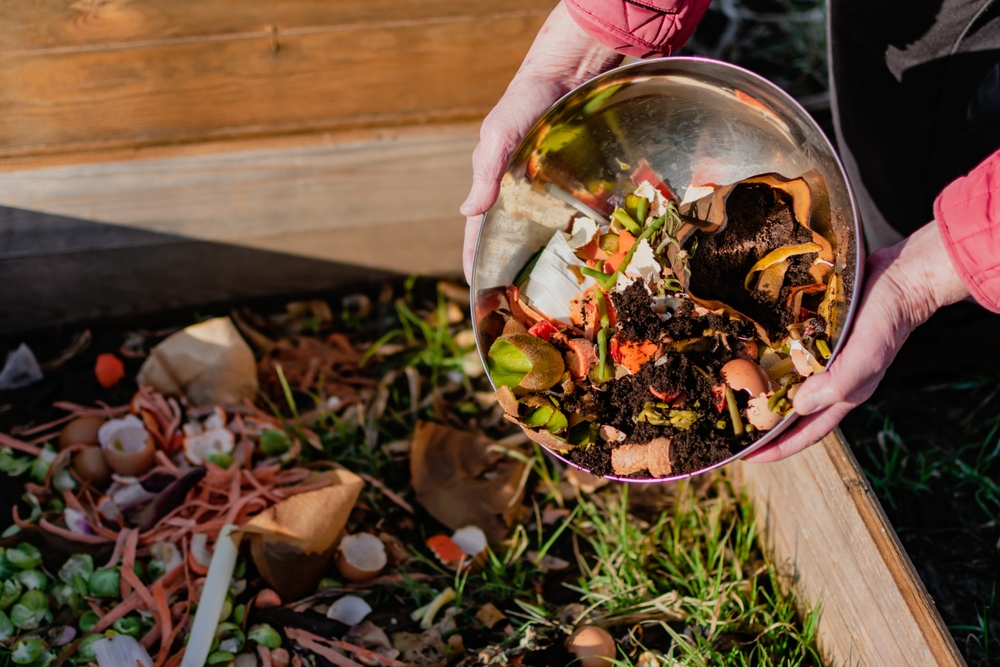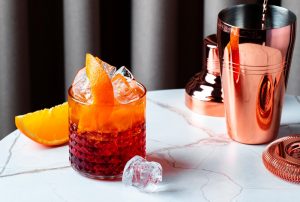Turning your kitchen and garden waste into nutrient-rich compost is very rewarding practice for any avid gardener. It is a fantastic way to recycle, reduce landfill waste, and create a valuable soil amendment for your plants.
However, you can’t just compost any old thing and not everything belongs in a composting mix.
The process of composting relies on the breakdown of organic materials but introducing certain materials can hinder the decomposition process, attract unwanted pests, or even contaminate the entire pile. To ensure your compost heap is a healthy and productive ecosystem, it is crucial that you know what to avoid.
Below, gardening expert Fiona Jenkins at MyJobQuote.co.uk goes over a detailed list of the things that you should never add to your composting pile. Read on to find out everything you need to know…
Meat and Milk Products
Meat and milk products are biodegradable. However, you should avoid adding them to your garden compost pile. These items can attract a variety of unwanted pests. These pests can cause damage to your garden and are often a big nuisance. Plus, unwanted pests could leave you with some additional unwanted gifts, such as poop.
Treated Wood or Sawdust
Any treated wood items such as sawdust or wood scraps should not be placed on your compost heap. The chemicals used to treat these items can compromise the integrity of your compost and may prevent you from being able to use it in the future. Untreated woods, on the other hand, are fine for composting.
Baked Goods
Things such as cookies, cakes and other baked goods should not be placed on your compost heap. These items can attract unwanted pests to your garden, similar to meat and milk products. Sweet baked goods can also attract a range of unwanted insects such as ants and wasps.

Foods That Are High In Acid
High acid foods such as pickled foods, tomatoes, and citrus fruits should not be placed on your compost heap. High levels of acid can kill the good bacteria that helps to break down the materials in your compost pile. This means that your composting won’t be as effective.
Greasy or Oily Foods
Your compost heap will need to have certain levels of moisture so that the items can decompose properly. Grease and oils can alter the moisture balance in the compost pile. With this in mind, it’s important to avoid placing greasy or oily items on the compost heap. Insects and other pests are also attracted to the smell of grease.
Human or Pet Waste
Although human and pet wastes are organic, it’s important to consider what your compost pile is going to be used for. Do you really want to spread waste all over your garden in the future? In addition, pet and human waste comes with terrible smells. If you don’t want your garden to stink, avoid these items on the compost pile. Certain waste can also create a health risk, so it’s best to avoid them altogether.
Weeds
Garden waste will usually make up a large proportion of your compost pile. It is a good idea to throw things like plants, sticks, leaves, and other greenery into your compost heap. However, you should avoid throwing any weeds into the pile. Weeds could potentially take root in the compost heap and begin to grow through the organic waste. This will put the quality of your compost in jeopardy.
Insect-infested or Diseased Plants
It takes a very hot compost pile to kill insects and diseases and, unfortunately, it’s very unlikely that you compost bin will reach the high temperatures needed to fight off these unwanted pests and diseases. This means that the diseases and pests can survive in the compost heap, deeming it unusable.
Charcoal Ash
It may be tempting to pour the remnants from your barbecue straight onto the compost pile. However, you should avoid doing this. Charcoal ash contains a lot of sulphur. This can make your compost pile too acidic for use on most plants. Charcoal is also often infused with a range of chemicals. These chemicals could harm your plants.

Cigarette Butts
Some cigarette butts are made from plastic, and most cigarette butts take a very long time to break down. In addition, cigarettes are full of awful chemicals. These chemicals could cause damage to your plants when the compost is used on them.
Leather Products
You should avoid placing leather on your compost pile. This is due to the oil finishes and various other chemical ingredients. Things like dyes, additives and chemical tanning agents can be very damaging to the compost pile and may harm plants. The additives in leather products will also mean that leather will take a very long time to decompose. With this in mind, it’s best to avoid placing leather products on the compost pile altogether.
Paper With a Lot of Colour
Paper with a lot of coloured printer ink on it or paper with marker pen markings on it should not be placed in the compost bin. Anything with a lot of ink on it could contain metals and other toxins that could contaminate the compost.
Final Thoughts
Creating a successful composting heap is all about balance and understanding the needs of the decomposition process. By being mindful of what you add to the pile and knowing what to avoid, you can ensure a steady supply of beneficial compost for your garden.
Steering clear of meat and dairy, treated wood, baked goods, high-acid foods, greasy items, waste, weeds, diseased plants, charcoal ash, cigarette butts, leather, and heavily inked paper will prevent a host of problems such as unwelcome pests, unpleasant odours, and the potential contamination of your soil. With this knowledge under your belt, you can complete the process safely, and you will be well on your way to nurturing a thriving and healthy garden with your own homemade compost.
Let It Grow: 6 Surprising Benefits of Not Mowing Your Lawn in May





